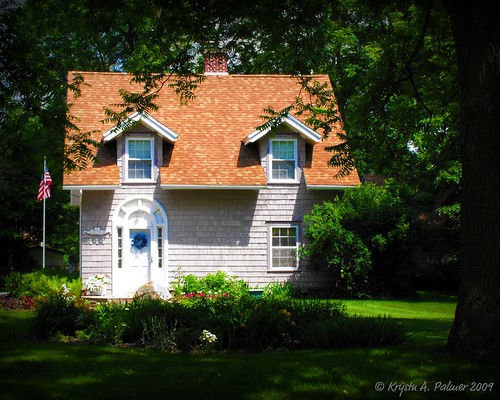Before you go shopping for a house, it’s important to set a limit for yourself on how much you’ll spend. If you’re paying in cash, it’ll be easy to set that limit. But if, like most people, you’ll be using a mortgage and a down payment to purchase your house, the question becomes how big of a mortgage can you afford.
The Quick Method
The quick way to estimate how much of a mortgage you can afford is to take your gross (before-tax) annual income, subtract your debt payments, and then multiply by 3 (use 2.9 if the mortgage rate is 6%, 2.7 if it’s 7%, or 2.5 if it’s 8%). Here’s an example. Let’s say you earn $50,000/year before taxes and you pay $200/month for student loans (which works out to $2,400/year). Subtract your annual debt payments and you’ll get $47,600. Multiply by 3 (since mortgage rates are currently around 5%) and you’ll find that you can afford a mortgage of roughly $143,000.
To translate that into a purchase price for the house, divide by 0.8 (assuming a 20% down payment). Doing so will tell you that you can afford a $179,000 home if you have a $36,000 down payment. Don’t forget that you’ll have to pay some closing costs on the mortgage as well (possibly an extra $2,000-3,000). Set your limit at the number you come up with, and do not go looking at houses above your price range.
The Better Method
If you want a more accurate method with less math on your part, I highly recommend Dinkytown.net’s Mortgage Qualifier Calculator. By entering all the information it asks for, you can come up with a home price and mortgage amount that will be affordable for your situation. You’ll need to enter your annual income, cash on hand, mortgage interest rate, mortgage term, property tax rate, homeowner’s insurance, closing costs, and your debt payments.
You can estimate your mortgage information by doing a few searches on Google. You can also find information on property tax rates and homeowner’s insurance costs for your area by searching Google. If you can’t find that information, call a real estate agent and ask them for some estimates. They’re very familiar with such costs and can help you guess at those costs.
What You Can Afford May Not Be What You Need
Just because a calculator spits out a number telling you that you can afford a $200,000 house does not necessarily mean you need a $200,000 house. If your actual needs are less than what you can afford, by all means buy a less expensive house and use the money you save for your other needs. Buying more house than you need is unlikely to do you much good in the long run. You’ll pay higher property taxes, insurance rates, and maintenance costs for something you’re not fully using.
If There Are No Homes Available in Your Price Range
Then you likely need to save a larger down payment or move to an area with a lower cost of living (if that’s an option). Stretching yourself to buy a house outside of your affordable range can easily lead to disaster when hard times hit. Beware of exotic mortgages (like interest only and other variations), and be very careful of ARMs (adjustable rate mortgages). The most manageable and safest mortgage is the traditional 30-year or 15-year fixed interest rate mortgage.
Another option is to keep shopping around until you find a house within your price range. Patience is a powerful tool when buying a house. Rushing the biggest purchase in your life is not a wise decision. Don’t let the emotions of searching for a home control your decisions and put you in a financial bind.
If you have any questions, leave a comment. I promise to respond as quickly as possible!





